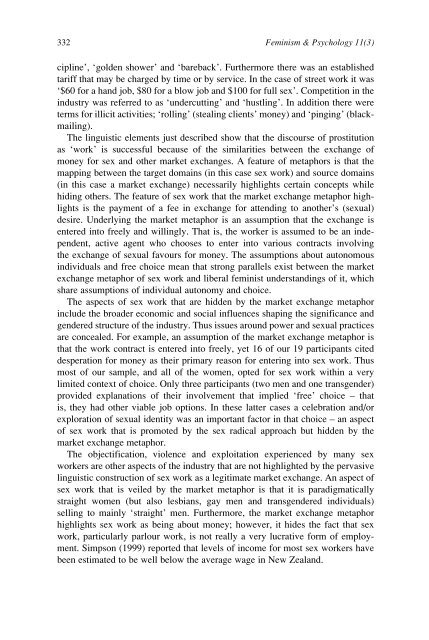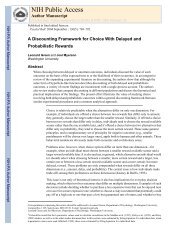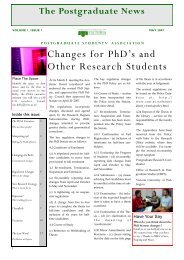A Feminist Discourse Analysis of Sex 'Work' - of /courses - Victoria ...
A Feminist Discourse Analysis of Sex 'Work' - of /courses - Victoria ...
A Feminist Discourse Analysis of Sex 'Work' - of /courses - Victoria ...
You also want an ePaper? Increase the reach of your titles
YUMPU automatically turns print PDFs into web optimized ePapers that Google loves.
332 Feminism & Psychology 11(3)<br />
cipline’, ‘golden shower’ and ‘bareback’. Furthermore there was an established<br />
tariff that may be charged by time or by service. In the case <strong>of</strong> street work it was<br />
‘$60 for a hand job, $80 for a blow job and $100 for full sex’. Competition in the<br />
industry was referred to as ‘undercutting’ and ‘hustling’. In addition there were<br />
terms for illicit activities; ‘rolling’ (stealing clients’ money) and ‘pinging’ (blackmailing).<br />
The linguistic elements just described show that the discourse <strong>of</strong> prostitution<br />
as ‘work’ is successful because <strong>of</strong> the similarities between the exchange <strong>of</strong><br />
money for sex and other market exchanges. A feature <strong>of</strong> metaphors is that the<br />
mapping between the target domains (in this case sex work) and source domains<br />
(in this case a market exchange) necessarily highlights certain concepts while<br />
hiding others. The feature <strong>of</strong> sex work that the market exchange metaphor highlights<br />
is the payment <strong>of</strong> a fee in exchange for attending to another’s (sexual)<br />
desire. Underlying the market metaphor is an assumption that the exchange is<br />
entered into freely and willingly. That is, the worker is assumed to be an independent,<br />
active agent who chooses to enter into various contracts involving<br />
the exchange <strong>of</strong> sexual favours for money. The assumptions about autonomous<br />
individuals and free choice mean that strong parallels exist between the market<br />
exchange metaphor <strong>of</strong> sex work and liberal feminist understandings <strong>of</strong> it, which<br />
share assumptions <strong>of</strong> individual autonomy and choice.<br />
The aspects <strong>of</strong> sex work that are hidden by the market exchange metaphor<br />
include the broader economic and social influences shaping the significance and<br />
gendered structure <strong>of</strong> the industry. Thus issues around power and sexual practices<br />
are concealed. For example, an assumption <strong>of</strong> the market exchange metaphor is<br />
that the work contract is entered into freely, yet 16 <strong>of</strong> our 19 participants cited<br />
desperation for money as their primary reason for entering into sex work. Thus<br />
most <strong>of</strong> our sample, and all <strong>of</strong> the women, opted for sex work within a very<br />
limited context <strong>of</strong> choice. Only three participants (two men and one transgender)<br />
provided explanations <strong>of</strong> their involvement that implied ‘free’ choice – that<br />
is, they had other viable job options. In these latter cases a celebration and/or<br />
exploration <strong>of</strong> sexual identity was an important factor in that choice – an aspect<br />
<strong>of</strong> sex work that is promoted by the sex radical approach but hidden by the<br />
market exchange metaphor.<br />
The objectification, violence and exploitation experienced by many sex<br />
workers are other aspects <strong>of</strong> the industry that are not highlighted by the pervasive<br />
linguistic construction <strong>of</strong> sex work as a legitimate market exchange. An aspect <strong>of</strong><br />
sex work that is veiled by the market metaphor is that it is paradigmatically<br />
straight women (but also lesbians, gay men and transgendered individuals)<br />
selling to mainly ‘straight’ men. Furthermore, the market exchange metaphor<br />
highlights sex work as being about money; however, it hides the fact that sex<br />
work, particularly parlour work, is not really a very lucrative form <strong>of</strong> employment.<br />
Simpson (1999) reported that levels <strong>of</strong> income for most sex workers have<br />
been estimated to be well below the average wage in New Zealand.






